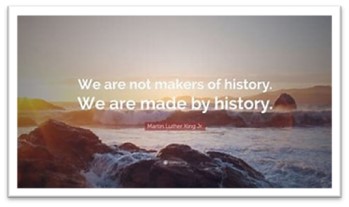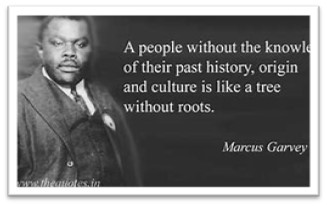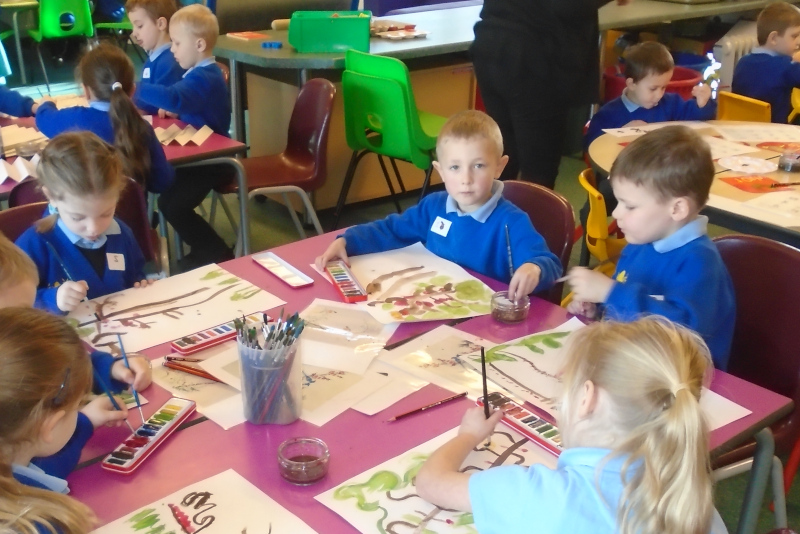History Curriculum


‘Study the past if you would define the future.’ Confucius
Why study History?
‘History helps pupils to understand the complexity of people’s lives, the process of change, the diversity of societies and relationships between different groups, as well as their own identity and the challenges of their time.’ The National Curriculum (DfE)
History enables children to understand their place in the world, and their connections between each other. Children gain an understanding of different ways of life, both past and present, thereby enhancing their perception and judgement of the world. What they explore through history can influence their decisions about personal choices, attitudes and values. Students of history learn to think critically, to analyse, to discuss and to contemplate.
Intent
At Mrs Bland’s Infant and Nursery School, the History Curriculum is designed to ignite children’s curiosity and enthusiasm about the past. Topics are informed by the national curriculum and are sensitive to children’s interests, as well as the context of the local area. It is a knowledge rich curriculum, which also strives to develop questioning skills and critical thinking.
In line with the National Curriculum (DfE 2014) the curriculum at Mrs Blands’ aims to ensure that all pupils:
- Gain a coherent knowledge and understanding of Britain’s past and that of the wider world, which helps to stimulate pupils’ curiosity to know more about the past.
- Are encouraged to ask perceptive questions, think critically, weigh evidence, sift arguments, and develop perspective and judgement.
- Begin to understand the complexity of people’s lives, the process of change, the diversity of societies and relationships between different groups, as well as their own identity and the challenges of their time.
Implementation
The History Curriculum at Mrs Bland’s strives to inspire pupils to develop an awareness of the past and to understand key concepts. Children will be taught where the people or events they study fit into a chronological framework. Key knowledge is reviewed and revisited regularly to ensure key facts and concepts move into the children’s long-term memory. Teachers cater for the varying needs of all learners, differentiating activities where necessary and as appropriate, to ensure that everyone can access the History we teach. There is a clear focus on historical vocabulary, which the children build upon year on year.
The Early Years Foundation Stage (EYFS) follows the ‘Development Matters in the EYFS’ guidance, which aims for all children in reception to have an ‘Understanding of the World; people and communities, the world and technology.’
In Key Stage One, Planning is informed by and aligned with the National Curriculum. The History Curriculum is designed to ensure appropriate diversity in the significant figures that the children learn about. The children are encouraged to ask and answer questions, and utilise the resources and stories shown to them to demonstrate that they know and understand the most significant events. They will begin to look at how we find out about the past and identify different ways in which it is represented.
Many of the topics taught are accompanied by an educational trip or visit which enhances the experience of our learners and brings the topic to life.
Impact
By the time the children at Mrs Bland’s Nursery and Infant School finish Year 2 they will have:
-Developed an awareness of the past and can use vocabulary relating to the passing of time
-Understand where the events and significant people they have studied fit into chronology
-Had the opportunity to think critically, ask questions and begin to analyse historical evidence
-Have begun to develop a passion for history, which develops their sense of curiosity about the past and their understanding of how and why people interpret the past in different ways.
Monitoring and Evaluation
Learning walks, collecting of books and observations all form part of our monitoring. Evidence is collected from each year group and collated by the subject lead. Each year group will plan lessons that facilitate the learning of new skills and the development of existing learnt techniques. Planning will allow cross-curricular links and support the extended use of vocabulary across the curriculum. Pupil voice is important to ensure that an awareness of successes, challenges and further opportunities are appreciated.
You can view/download our History Long Term Plan as a PDF file by clicking here
Click the link below to View/download the Learning Journey for History by class year and term. (Please note: History and Geography alternate so are not taught every half term)
YR History Learning Journey Autumn Term 1
YR History Learning Journey Autumn Term 2
YR History Learning Journey Spring Term 1
YR History Learning Journey Spring Term 2
YR History Learning Journey Summer Term 1
YR History Learning Journey Summer Term 2
Y1 History Learning Journey Autumn Term 1 and 2
Y1 History Learning Journey Spring Term 1 and 2
Y1 History Learning Journey Summer Term 1 and 2
Y2 History Learning Journey Autumn Term 1 and 2
Y2 History Learning Journey Spring Term 1
Y2 History Learning Journey Spring Term 2
Y2 History Learning Journey Summer Term 1 and 2
What do the children think of History at Mrs Bland’s Infant and Nursery School?
“I loved learning about the nurses from the past because it was really interesting.”
“Our trip to Oxford Museum was so fun. We got to see real dinosaur bones.”
“I liked watching the film of Neil Armstrong walking on the moon. They jumped really high!”
“History is my favourite because we learn lots of great things.”

